Please fill out the following information, and RRFC Admissions will contact you to discuss our program offerings:
Issue #54
by L. Swift and Jeff McQ


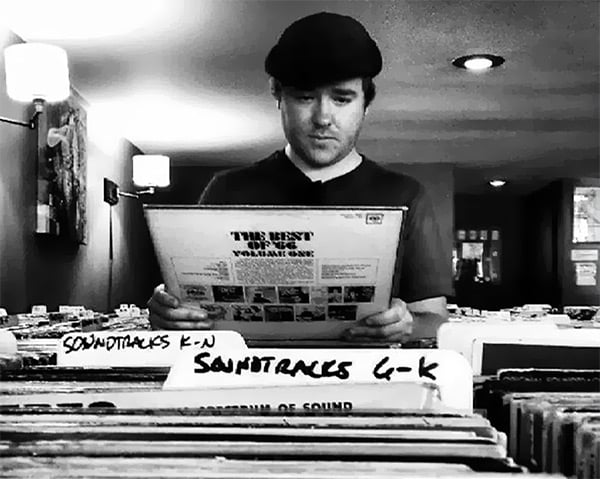 Hadley: We have one room completely up and running with a console, two computers, and all of the hardware synths. It’s decked out so we’re able to take on clients and students. But it’s still just the one room out of the three that we’re going to have.
RRFC: So you mentioned that you’re over there working with Doug. How do you two break up the work flow?
Hadley: Well, what’s really cool is obviously Doug is our head producer. So I like to split up our work in the sense that he’s very much on the creative side whereas my role is more administrative. I’m more taking care of the day to day operations of the studio, managing calendars, making sure that Doug knows exactly what he’s going to be working on each day and who’s going to be coming in and who’s paid and who’s unpaid, and things like that whereas Doug is doing a lot of the actual hands-on creative work production-wise.
RRFC: Do you think it’s important to free up the creative part of the team to do just that, be creative?
Hadley: Yeah, I think that it’s absolutely essential to let the creative side worry about that and keep a level of organization so that everything just continues to move. It’s all just little gears and a clock, and I try as hard as I can not to throw a wrench in it.
RRFC: We totally hear you on that. Do you ever get to step in and do some work on the creative side?
Hadley: Yeah. We’re doing a small four or five part video series documenting the whole build out of our facility, which will go live. I’ve been doing the production for a lot of the music of the episodic content for it, so I’m definitely still getting in there and doing a decent amount of production myself, which is awesome. Working in this facility, I’m able to sit there and learn all the manuals to all the gear that we have. As the manager I also want to make sure that I really know every single piece of equipment that we have and how it works. In case somebody doesn’t show up, I can still go in and help a client operate the room.
RRFC: Right. Do you think you would enjoy the business side of it as much if you hadn’t already gone through the program and learned every in and out of it? For example, do you think you would get frustrated if you didn’t already know what the equipment was?
Hadley: Most definitely because what it all comes down to is the passion for the craft [and that] is what I have first and foremost. I’d say that it would make quite a bit of difference because I wouldn’t really know what it was that I was even managing work production-wise. Does that make sense?
RRFC: Since you trained as an engineer, and now you’re on the business side of it, so when someone comes to you and says, “We need this $3000 microphone,” or whatever, you’d probably be more prone to understanding and saying, “Yeah, I think we do need that.”
Hadley: Exactly. Yeah, exactly.
RRFC: So you apprenticed with Steve Sundholm at Kung Fu Bakery in Portland, OR. Anything you can tell us about your experience apprenticing with Steve?
Hadley: Oh rad. Cool. Steve is awesome, dude. He’s such a character. I think the thing that really worked out is we both have kind of a weird sense of humor and we just really got along. What was cool was he would let me go to his wood shop and help him build things for his studio. So he was above and beyond a hands-on mentor which was really cool. He even gave me some leads on where to start looking for some freelance work and things like that. He was definitely instrumental in my becoming established down here [in LA] which is really cool.
The only advice I can really give is you have to make yourself available and you have to be tenacious. What I always tell people is music, audio, film, any of the creative paths that one can take in their career, it’s never an easy out. For some reason, sometimes I feel like people think, “Oh, I’m just going to pick up a laptop and I’m going to be the next Skrillex and it’s not going to take any time. I’m just going to do it.” But that’s not how it works. And you really have to be very tenacious. You have to work at it every day.
We couldn’t agree more. Thanks to Hadley, Doug, and the team at Abstract Recording Studios! We can’t wait to see what you guys have in store!
Hadley: We have one room completely up and running with a console, two computers, and all of the hardware synths. It’s decked out so we’re able to take on clients and students. But it’s still just the one room out of the three that we’re going to have.
RRFC: So you mentioned that you’re over there working with Doug. How do you two break up the work flow?
Hadley: Well, what’s really cool is obviously Doug is our head producer. So I like to split up our work in the sense that he’s very much on the creative side whereas my role is more administrative. I’m more taking care of the day to day operations of the studio, managing calendars, making sure that Doug knows exactly what he’s going to be working on each day and who’s going to be coming in and who’s paid and who’s unpaid, and things like that whereas Doug is doing a lot of the actual hands-on creative work production-wise.
RRFC: Do you think it’s important to free up the creative part of the team to do just that, be creative?
Hadley: Yeah, I think that it’s absolutely essential to let the creative side worry about that and keep a level of organization so that everything just continues to move. It’s all just little gears and a clock, and I try as hard as I can not to throw a wrench in it.
RRFC: We totally hear you on that. Do you ever get to step in and do some work on the creative side?
Hadley: Yeah. We’re doing a small four or five part video series documenting the whole build out of our facility, which will go live. I’ve been doing the production for a lot of the music of the episodic content for it, so I’m definitely still getting in there and doing a decent amount of production myself, which is awesome. Working in this facility, I’m able to sit there and learn all the manuals to all the gear that we have. As the manager I also want to make sure that I really know every single piece of equipment that we have and how it works. In case somebody doesn’t show up, I can still go in and help a client operate the room.
RRFC: Right. Do you think you would enjoy the business side of it as much if you hadn’t already gone through the program and learned every in and out of it? For example, do you think you would get frustrated if you didn’t already know what the equipment was?
Hadley: Most definitely because what it all comes down to is the passion for the craft [and that] is what I have first and foremost. I’d say that it would make quite a bit of difference because I wouldn’t really know what it was that I was even managing work production-wise. Does that make sense?
RRFC: Since you trained as an engineer, and now you’re on the business side of it, so when someone comes to you and says, “We need this $3000 microphone,” or whatever, you’d probably be more prone to understanding and saying, “Yeah, I think we do need that.”
Hadley: Exactly. Yeah, exactly.
RRFC: So you apprenticed with Steve Sundholm at Kung Fu Bakery in Portland, OR. Anything you can tell us about your experience apprenticing with Steve?
Hadley: Oh rad. Cool. Steve is awesome, dude. He’s such a character. I think the thing that really worked out is we both have kind of a weird sense of humor and we just really got along. What was cool was he would let me go to his wood shop and help him build things for his studio. So he was above and beyond a hands-on mentor which was really cool. He even gave me some leads on where to start looking for some freelance work and things like that. He was definitely instrumental in my becoming established down here [in LA] which is really cool.
The only advice I can really give is you have to make yourself available and you have to be tenacious. What I always tell people is music, audio, film, any of the creative paths that one can take in their career, it’s never an easy out. For some reason, sometimes I feel like people think, “Oh, I’m just going to pick up a laptop and I’m going to be the next Skrillex and it’s not going to take any time. I’m just going to do it.” But that’s not how it works. And you really have to be very tenacious. You have to work at it every day.
We couldn’t agree more. Thanks to Hadley, Doug, and the team at Abstract Recording Studios! We can’t wait to see what you guys have in store!
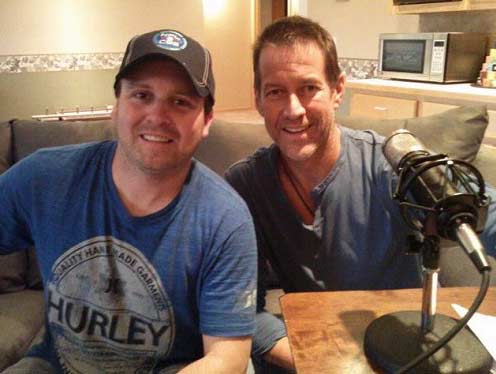
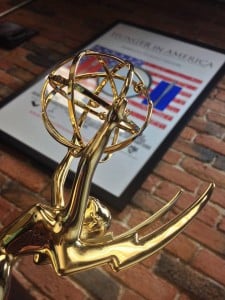 SPECIAL ANNOUNCEMENT!
Congrats to Film Connection mentor Zac Adams Midsouth Emmy Winner for Hunger in America!!!
Film Connection mentor Zac Adams, producer, director and CEO for Skydive Films in Nashville, TN, recently took home a Mid-South Emmy Award for his televised documentary film Hunger In America, narrated by James Denton!
“Winning a Mid-South was truly an honor, especially for a film we spent over 2 years and travelling 10,000 miles making,” says Zac. “I hope this achievement will spread the message of the hunger crisis happening here in our own back yard.”
Zac is currently putting the finishing touches on a new documentary, Autism In America, set for release March 18. Film Connection apprentices Jamie Reed and Matthew Gibson are both working on the film. Congratulations on the win, Zac!
SPECIAL ANNOUNCEMENT!
Congrats to Film Connection mentor Zac Adams Midsouth Emmy Winner for Hunger in America!!!
Film Connection mentor Zac Adams, producer, director and CEO for Skydive Films in Nashville, TN, recently took home a Mid-South Emmy Award for his televised documentary film Hunger In America, narrated by James Denton!
“Winning a Mid-South was truly an honor, especially for a film we spent over 2 years and travelling 10,000 miles making,” says Zac. “I hope this achievement will spread the message of the hunger crisis happening here in our own back yard.”
Zac is currently putting the finishing touches on a new documentary, Autism In America, set for release March 18. Film Connection apprentices Jamie Reed and Matthew Gibson are both working on the film. Congratulations on the win, Zac!
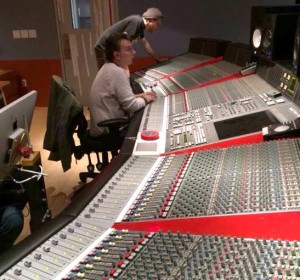 Brian is happy to announce that audio engineer, mixer and studio manager Bobby Ferrari of Vegas View Recording is joining the ranks as a Recording Connection mentor!
With views of the Las Vegas strip, this plush recording studio is home to Grammy winning engineers and boasts a breathtakingly phenomenal live room, large tracking room and SSL9000i 80 console. We can’t wait to get a few of our lucky students in this studio!
Brian is happy to announce that audio engineer, mixer and studio manager Bobby Ferrari of Vegas View Recording is joining the ranks as a Recording Connection mentor!
With views of the Las Vegas strip, this plush recording studio is home to Grammy winning engineers and boasts a breathtakingly phenomenal live room, large tracking room and SSL9000i 80 console. We can’t wait to get a few of our lucky students in this studio!
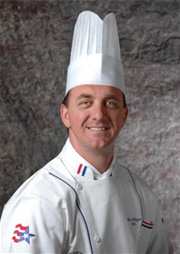 “I went to the culinary institute of America in Hyde Park but learned just as much during my externship at the Four Seasons Hotel in Newport Beach.
“As an executive chef I used to throw away resumes from kids dumb enough to blow 65k to attend The Art Institute and Le Cordon Bleu because they had no experience and prima donna attitudes. Cooking in the trenches of a real cutting edge kitchen is the only way to go.
“Students’ lack of experience, in fact zero experience after graduation and accumulated debt are what’s wrong with the culinary school system of today. Le Cordon Bleu charges 65k for 2 years of playing house! Conventional culinary school’s training is for suckers. Culinary schools are for profit and proud of it!”
— Martin Gilligan CEC, MCFE, American Culinary Federation’s ‘Chef of the Year 2005’ Los Angeles, CA
“I went to the culinary institute of America in Hyde Park but learned just as much during my externship at the Four Seasons Hotel in Newport Beach.
“As an executive chef I used to throw away resumes from kids dumb enough to blow 65k to attend The Art Institute and Le Cordon Bleu because they had no experience and prima donna attitudes. Cooking in the trenches of a real cutting edge kitchen is the only way to go.
“Students’ lack of experience, in fact zero experience after graduation and accumulated debt are what’s wrong with the culinary school system of today. Le Cordon Bleu charges 65k for 2 years of playing house! Conventional culinary school’s training is for suckers. Culinary schools are for profit and proud of it!”
— Martin Gilligan CEC, MCFE, American Culinary Federation’s ‘Chef of the Year 2005’ Los Angeles, CA
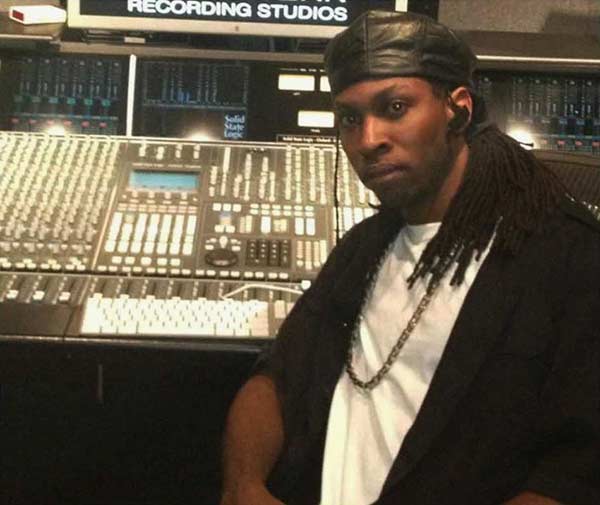 Recording Connection mentor Felipe Frazier (known by his industry moniker as “AudioFlip”) of East Atlanta Records is rapidly building a name for himself in the Atlanta, Georgia music scene, not only working with a number of great up-and-coming and underground artists, but also doing post audio for a number of films. Rather than hiring on as a staff engineer at one of the local recording studios, he works for himself as a freelance engineer, which gives him the opportunity to work in several of Atlanta’s best studios (and also gives his apprentices the chance to experience a diversity of setups and gear!).
Working in a variety of studios as AudioFlip does, he understands the importance of getting your hands on lots of gear, perhaps more than most—which is one of the reasons he enjoys being a Recording Connection mentor. “I went to Full Sail University,” he says, “so I definitely went to one of the largest schools. In that situation, there’s a lot more paperwork, so if I just guessed at the right answers, I could possibly go through… I didn’t get too many real case scenarios.” For AudioFlip, this basically meant re-learning after he graduated. “Most of the stuff, I was like, ‘Oh yeah, I remember reading this at school,’ but I still had to learn it in the real world.”
AudioFlip took this experience to heart, and when he began taking on apprentices a few years ago, he made sure the hands-on element was firmly in place. “I help them through some of the scenarios that they most definitely are going to run into when they start working with people in the actual real world,” he says. “Not just knowing what to do, but a style of doing it to keep clients in your studio more interested than actually just knowing the stuff….Worst-case scenario is make or create a scenario. Like I’ll unplug the microphone, stuff like that, to see if they figure it out, troubleshoot. I do more real world. I believe any mentor should give more of a real world sense versus just learning in a classroom and taking a multiple choice questionnaire at the end.”
While he’s currently working with eight different apprentices, some of his earlier students still stand out to him, and they still keep in touch. “Sabrina Williams was really into the editing part,” he recalls. “She was really good at editing, producing, making stuff sound cool. She loved to auto-tune stuff. She was really good at creating a sound out of nothing. Some of the stuff she produced, [I] was like, ‘Where did you come up with that?’ It was non-traditional, really good.”
Adonis Odin was another standout. “He leaned more towards hip hop and rap,” says AudioFlip. “He was really down with the fundamentals of working in the studio—engineering, recording, mix and mastering. He’s the one, out of all of them, who’s going to do close to what I do throughout his career. He’s really good at talking to people and keeping his composure, professionalism, not really trying to be a star. He can really use the fundamentals of recording that gives the best quality.”
From an engineering standpoint, AudioFlip is all about being creative and trying things, and he tries to impart that creativity to his students. “Honestly, I don’t use presets,” he says. “I tell my students, ‘Don’t listen to me, I’m not the All-Knowing, but I don’t like presets because I like to attack every project as if I just stepped into the studio.’
“Everybody wants an instant thing,” he continues, “and just because it’s instant doesn’t mean it’s the best. It might sound good, but you’d be surprised at how phenomenal it might sound if you just went and did it without a preset…A lot of monster ideas came from a mistake. I made a mistake and turned a knob too high…and I was like, ‘Oh, I gotta use that.’ When you use presets, you go away from stuff like that.”
AudioFlip’s advice for up-and-comers to the music industry? “Staying and strive, staying and strive is really keen,” he says. “I say definitely read as much material as possible…There’s just so many different kind of devices, technology, especially now. Digital versus audio, you don’t know what you work best with unless you know it all, or at least know a little bit about it… Just try to learn the most about the tools you’re using. As far as your creativeness, that’s in you. But you gotta be one with the tools you’re using to really create what’s in your head. Because otherwise, if you let your tools run you, you’re going to be a subject of that.”
Recording Connection mentor Felipe Frazier (known by his industry moniker as “AudioFlip”) of East Atlanta Records is rapidly building a name for himself in the Atlanta, Georgia music scene, not only working with a number of great up-and-coming and underground artists, but also doing post audio for a number of films. Rather than hiring on as a staff engineer at one of the local recording studios, he works for himself as a freelance engineer, which gives him the opportunity to work in several of Atlanta’s best studios (and also gives his apprentices the chance to experience a diversity of setups and gear!).
Working in a variety of studios as AudioFlip does, he understands the importance of getting your hands on lots of gear, perhaps more than most—which is one of the reasons he enjoys being a Recording Connection mentor. “I went to Full Sail University,” he says, “so I definitely went to one of the largest schools. In that situation, there’s a lot more paperwork, so if I just guessed at the right answers, I could possibly go through… I didn’t get too many real case scenarios.” For AudioFlip, this basically meant re-learning after he graduated. “Most of the stuff, I was like, ‘Oh yeah, I remember reading this at school,’ but I still had to learn it in the real world.”
AudioFlip took this experience to heart, and when he began taking on apprentices a few years ago, he made sure the hands-on element was firmly in place. “I help them through some of the scenarios that they most definitely are going to run into when they start working with people in the actual real world,” he says. “Not just knowing what to do, but a style of doing it to keep clients in your studio more interested than actually just knowing the stuff….Worst-case scenario is make or create a scenario. Like I’ll unplug the microphone, stuff like that, to see if they figure it out, troubleshoot. I do more real world. I believe any mentor should give more of a real world sense versus just learning in a classroom and taking a multiple choice questionnaire at the end.”
While he’s currently working with eight different apprentices, some of his earlier students still stand out to him, and they still keep in touch. “Sabrina Williams was really into the editing part,” he recalls. “She was really good at editing, producing, making stuff sound cool. She loved to auto-tune stuff. She was really good at creating a sound out of nothing. Some of the stuff she produced, [I] was like, ‘Where did you come up with that?’ It was non-traditional, really good.”
Adonis Odin was another standout. “He leaned more towards hip hop and rap,” says AudioFlip. “He was really down with the fundamentals of working in the studio—engineering, recording, mix and mastering. He’s the one, out of all of them, who’s going to do close to what I do throughout his career. He’s really good at talking to people and keeping his composure, professionalism, not really trying to be a star. He can really use the fundamentals of recording that gives the best quality.”
From an engineering standpoint, AudioFlip is all about being creative and trying things, and he tries to impart that creativity to his students. “Honestly, I don’t use presets,” he says. “I tell my students, ‘Don’t listen to me, I’m not the All-Knowing, but I don’t like presets because I like to attack every project as if I just stepped into the studio.’
“Everybody wants an instant thing,” he continues, “and just because it’s instant doesn’t mean it’s the best. It might sound good, but you’d be surprised at how phenomenal it might sound if you just went and did it without a preset…A lot of monster ideas came from a mistake. I made a mistake and turned a knob too high…and I was like, ‘Oh, I gotta use that.’ When you use presets, you go away from stuff like that.”
AudioFlip’s advice for up-and-comers to the music industry? “Staying and strive, staying and strive is really keen,” he says. “I say definitely read as much material as possible…There’s just so many different kind of devices, technology, especially now. Digital versus audio, you don’t know what you work best with unless you know it all, or at least know a little bit about it… Just try to learn the most about the tools you’re using. As far as your creativeness, that’s in you. But you gotta be one with the tools you’re using to really create what’s in your head. Because otherwise, if you let your tools run you, you’re going to be a subject of that.”
 Recording Connection student Lindsey Kappa (Austin, TX) is picking up her Delta King and working on her demo…
Recording Connection student Lindsey Kappa (Austin, TX) is picking up her Delta King and working on her demo…
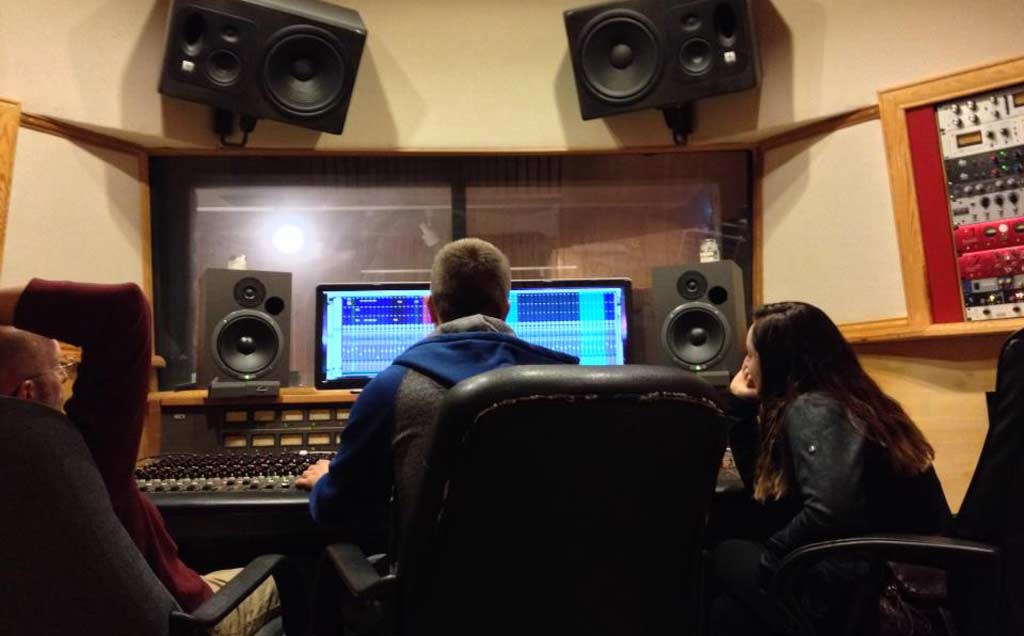 Recording Connection apprentices Zirajet Idrizoski and Kegan Anderson sit in on a Bleeding Keys recording session at Azmyth Recording in Indianapolis, IN!
Recording Connection apprentices Zirajet Idrizoski and Kegan Anderson sit in on a Bleeding Keys recording session at Azmyth Recording in Indianapolis, IN!



RRFC is education upgraded for the 21st century.
Get the latest career advice, insider production tips, and more!
Please fill out the following information, and RRFC Admissions will contact you to discuss our program offerings:
Stay in the Loop: Subscribe for RRFC news & updates!
© 2025 Recording Radio Film Connection & CASA Schools. All Rights Reserved.
